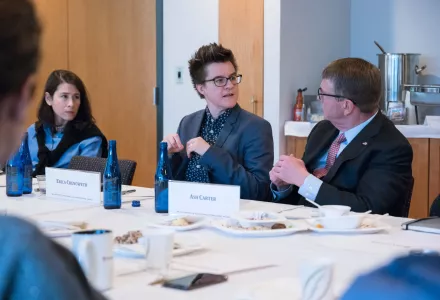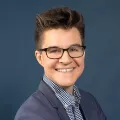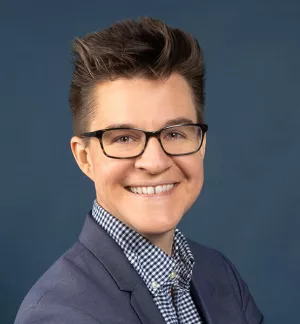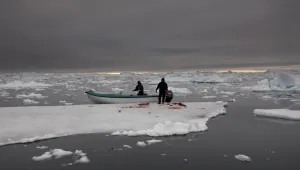
Erica Chenoweth is Professor of Public Policy at Harvard Kennedy School and a Susan S. and Kenneth L. Wallach Professor at the Radcliffe Institute for Advanced Study. Her research focuses on political violence and its alternatives. Foreign Policy magazine ranked her among the Top 100 Global Thinkers of 2013. Her forthcoming book, Civil Resistance: What Everyone Needs to Know, explores what civil resistance is, how it works, why it sometimes fails, how violence and repression affect it, and the long-term impacts of such resistance.
In this Q&A, Belfer Center Communications Director Josh Burek asks Chenoweth about her research and her experiences as a new faculty member at the Kennedy School.
Q: Your research has shown that nonviolent mass campaigns can be twice as effective as their armed equivalents. But are activists themselves increasingly turning to civil resistance?
Chenoweth: It seems that way. According to the data that my research team is collecting, we live in the decade in which there have been more mass nonviolent movements around the world than at any time in recorded history.
What’s a common misconception HKS students have about terrorism?
A lot of people—not just HKS students—think that terrorism was essentially “invented” on 9/11. But terrorism is a tactic whose use extends back centuries, and there is a lot to learn from historical cases about the ways that terrorism affects political life (and vice versa).
It’s Sept. 12, 2001 and President Bush is asking for your advice on how to fight back against terrorism. What do you tell him?
Proportionality is everything. The strategy of terrorism is to provoke an overreaction and polarize a population at an exceedingly low cost. Resisting the urge to respond with overwhelming strength and resources can be difficult politically, but a counterterrorism strategy that focuses on proportional responses will be effective and much less costly.
Social media was once thought to be a great amplifier of nonviolent change movements. Now it’s seen as aiding authoritarian control. Taking the long view, how does disruptive media technology tend to influence civil resistance?
Well, Gandhi organized the Salt March in 1930 by walking town to town and gathering thousands of marchers over 240 miles. So clearly civil resistance predates Facebook. There was certainly a time when social media seemed to benefit organizers and activists in terms of coordination and communication. But just like any communications technology, social media is a tool that anyone can use—including governments wanting to surveil or control people power movements. In general, I think it’s useful to see disruptive media technologies as characteristics rather than causes of civil resistance over time.
You love fly-fishing. Which rivers are on your bucket list?
The River Dee in Scotland, and any number of salmon fisheries in the Pacific Northwest.
What else do you like to do outside work that might surprise readers?
I am not sure there is anything surprising, but my top activities outside of work are reading, hiking, volunteering, and spending time with friends and family. I also have pretty eclectic musical tastes. In the past year, I’ve seen Nas at Red Rocks, Madame Butterfly at the Santa Fe Opera, and lots in between.
What are you seeing and hearing from this generation of students at HKS that gives you hope for the world?
I find HKS students incredibly motivated, smart, and curious. Our students have really unique life experiences and impressive backgrounds. But most of all, I appreciate the drive to better understand how to solve big problems and make the world a better place. It’s a total joy to be part of the HKS community with such amazing students.
Is there a current nonviolent resistance movement the media should be watching?
Yes—everyone should be watching Algeria and Sudan.
"Q&A: Erica Chenoweth." Belfer Center Newsletter. Belfer Center for Science and International Affairs, Harvard Kennedy School (Spring 2019).



